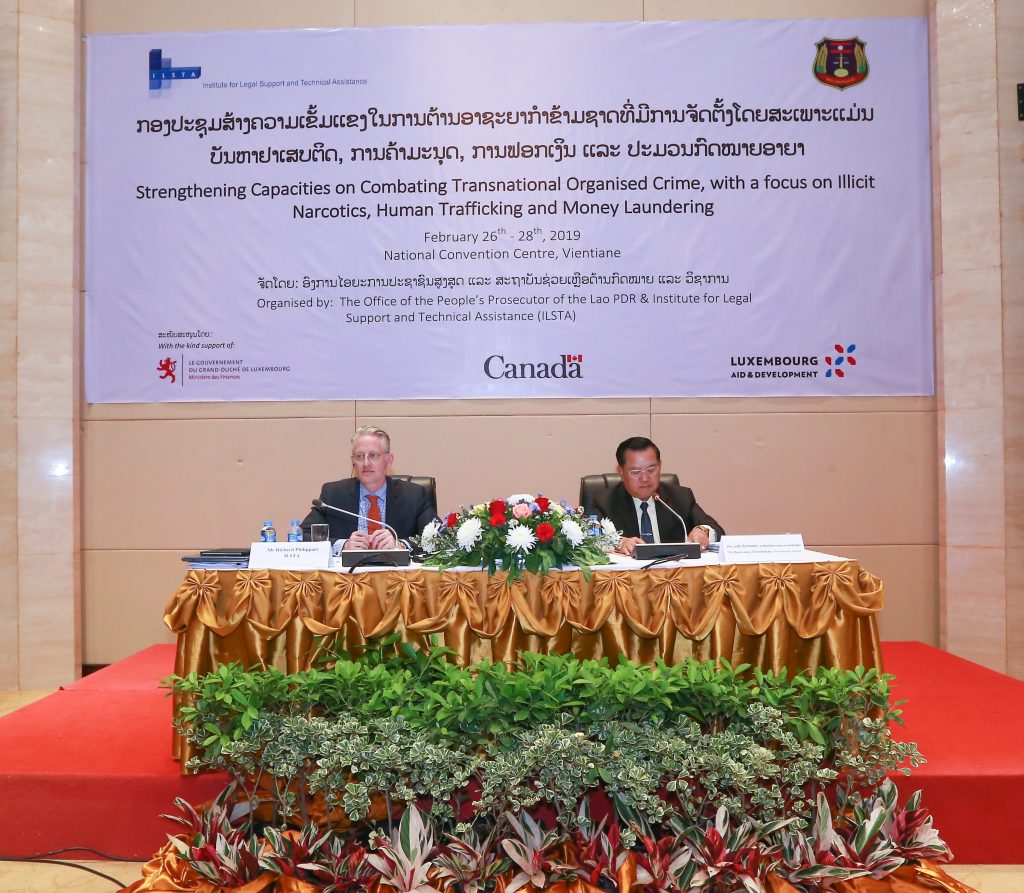
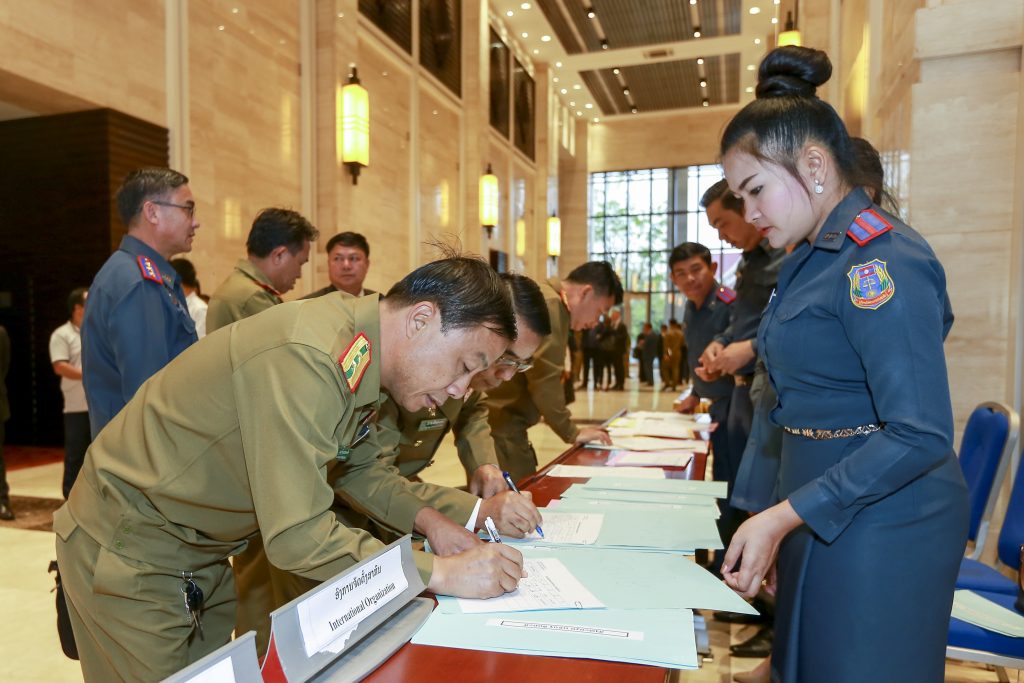
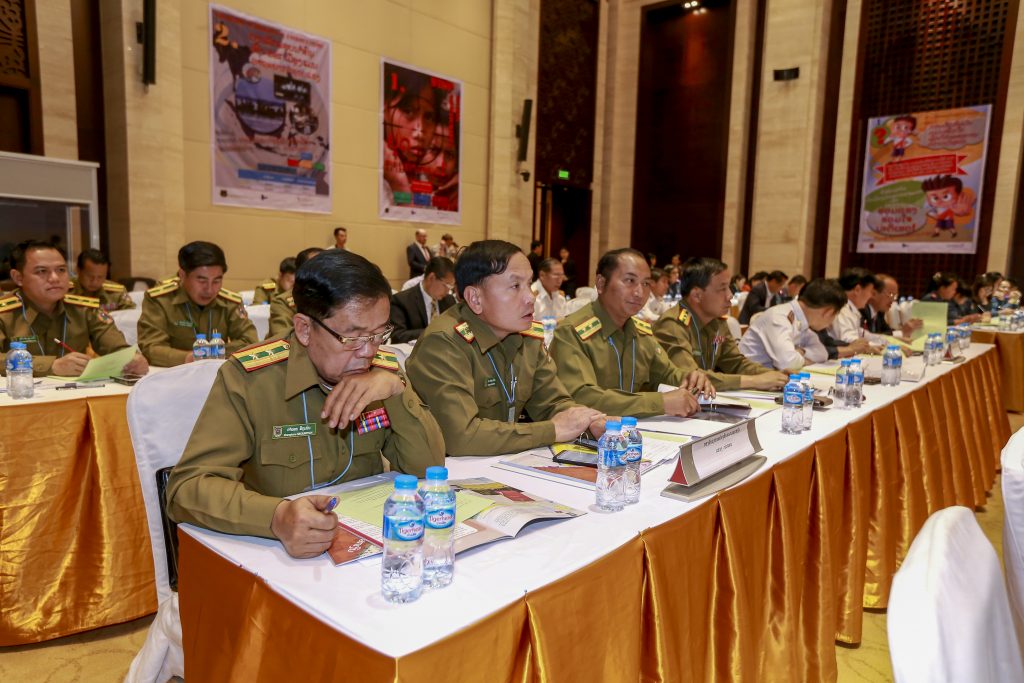
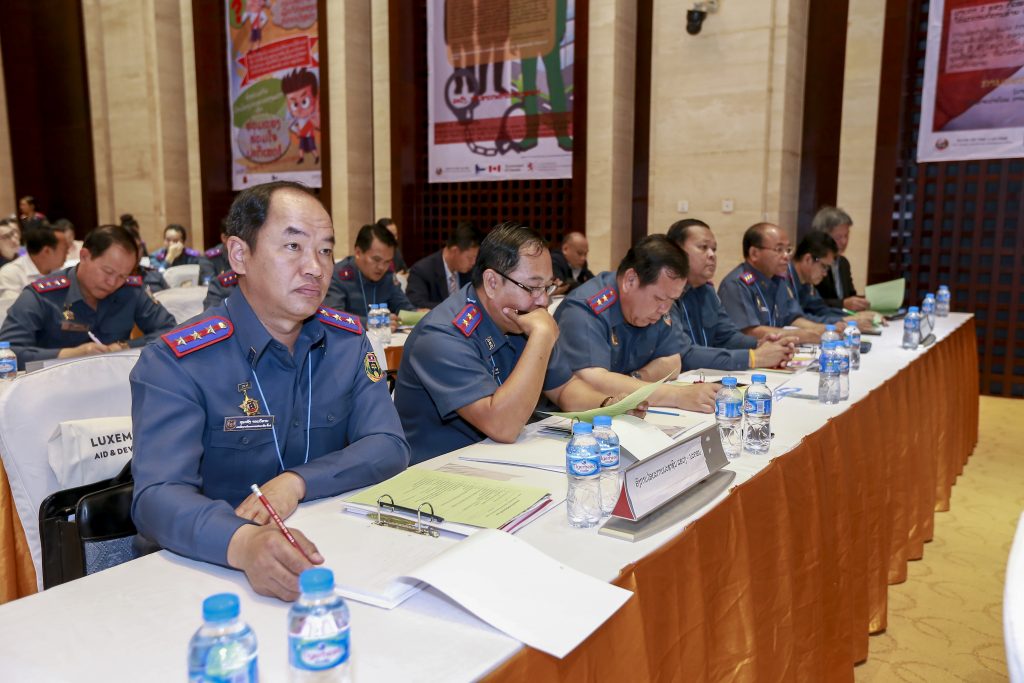
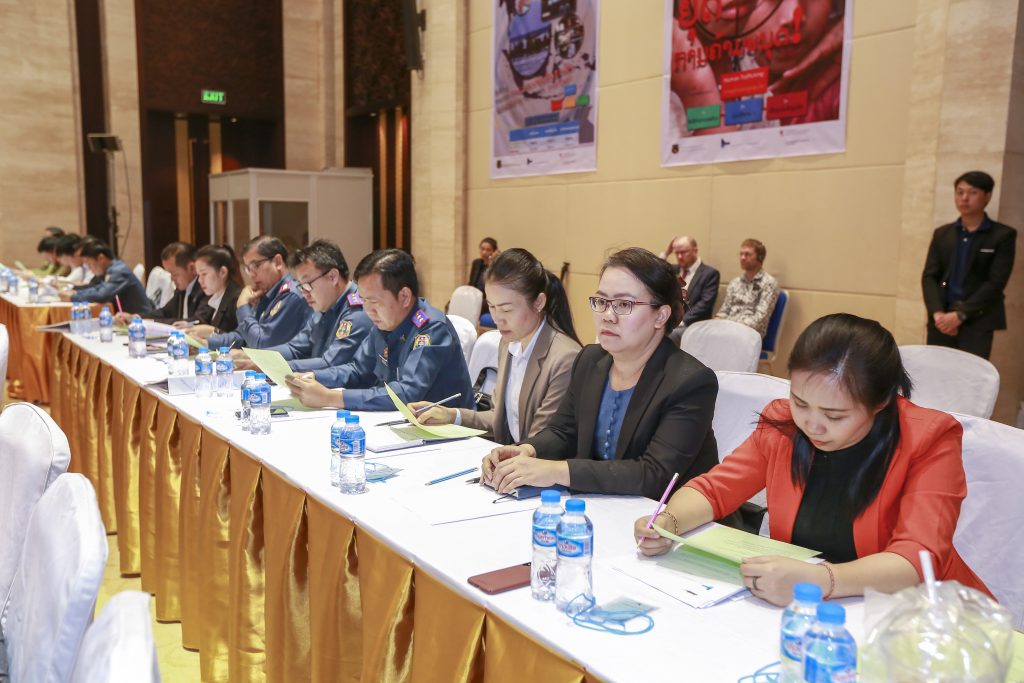
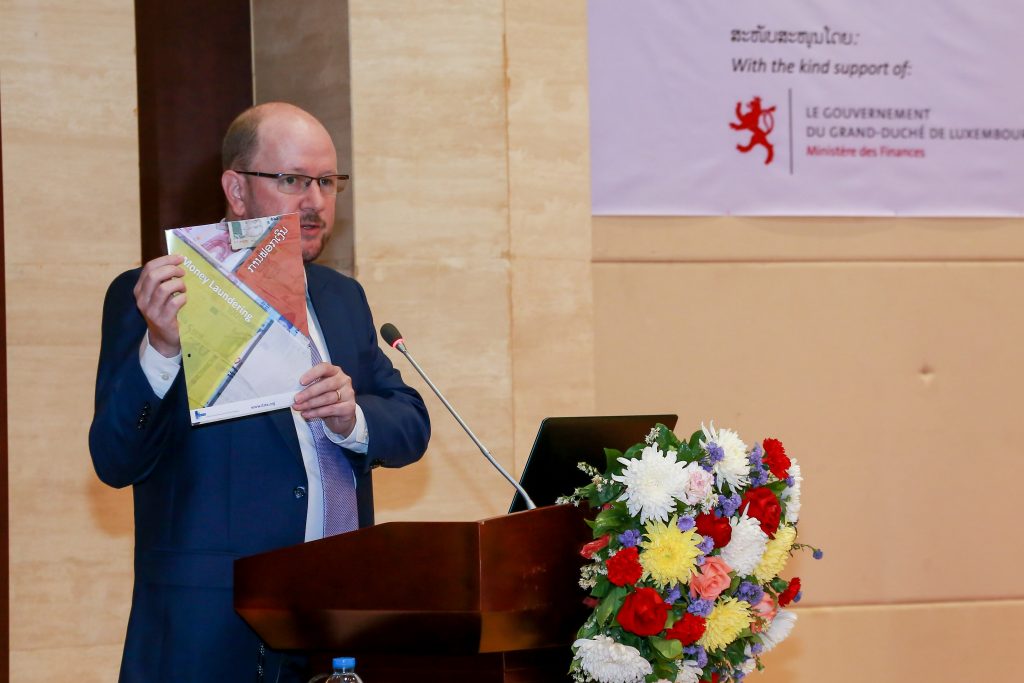
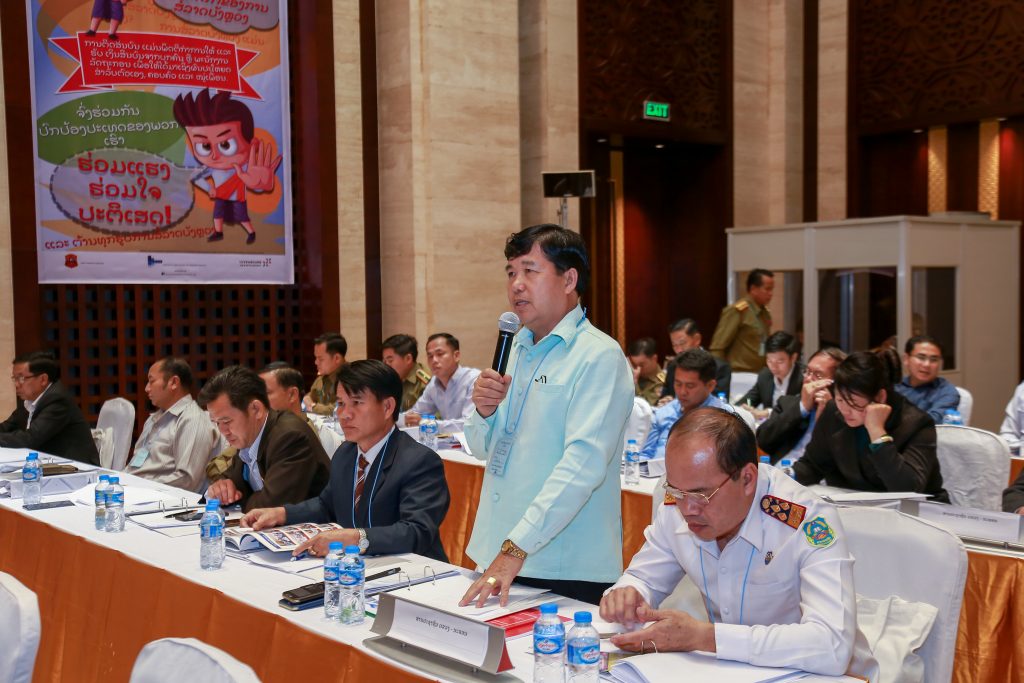
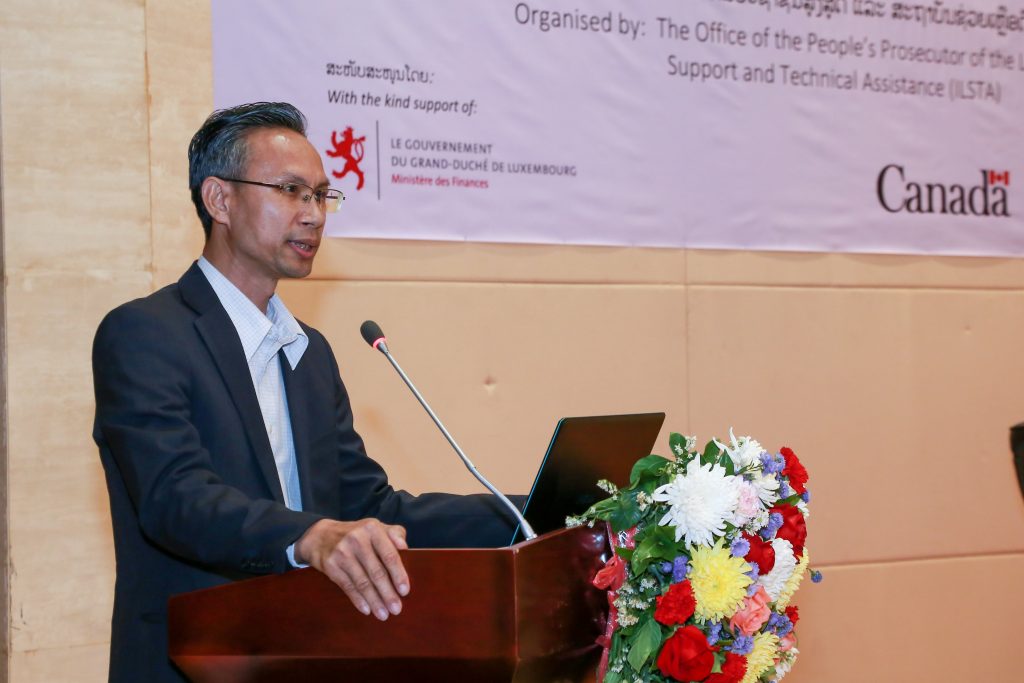
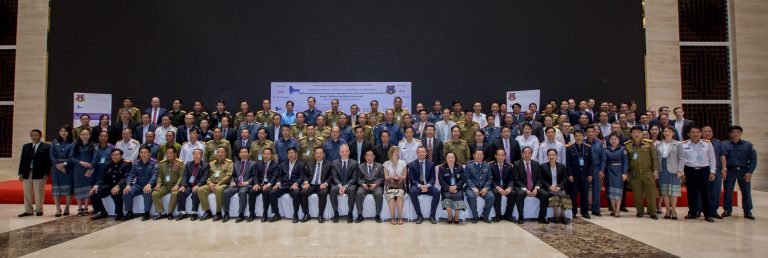
ILSTA was happy to work hand in hand with the Office of the Supreme People’s Prosecutors for the third edition of the National Conference on Combating Organised Crime, that has taken place over three days at the National Conference Centre in Vientiane from 26-28 February. Senior prosecutors, judges and police from all 17 provinces in Laos as well as invited international experts discussed the challenges faced in combating organised crime.
Southeast Asia is exposed to a number of security challenges, illicit narcotics, precursors – to manufacture narcotics, human trafficking, smuggling of migrants, illegal wildlife trade, counterfeit products, money laundering and corruption. These matters are interconnected as organised crime groups are often involved in more than one illicit activity.
This 3rd national conference brought together all concerned national authorities.
Mr. Bounyang Chandalasane, Deputy Prosecutor General of Lao PDR, stressed the importance of international expertise in the fight against transnational organized crime, as it poses significant challenges to all countries in the region, including Laos, and to its prosperity and development.
“To properly combat these phenomena, law enforcement authorities with investigating powers, prosecutors and judges must acquire skills, exchange information and comply with international standards.”
President of ILSTA, Mr. Richard Philippart said that “The impacts of illegal activities can be diverse, but the common feature is that organised crime negatively affects the life chances of ordinary people: it undermines key institutions, threatens human security, damages the environment, and distorts and impedes economic growth.’’
Mr Ket Kiettisack, Former Vice Minister of Justice, presented the new Penal Code which was disseminated during the conference along with the amended criminal procedure law. ILSTA in partnership with OSPP has supported the publication and dissemination of both laws and will continue with a nationwide programme of provincial workshops.
A keynote speaker from the Global Initiative pointed to the compression of space and time with the development in transport and technology which means that far from being remote and landlocked, Laos is geographically a trade junction. This reality needs to inform Laos’ policy in combating organised crime groups and their illicit activities.
The conference adopted a number of recommendations which will be implemented over the coming year, including continued capacity building in the area of criminal law and cooperation; dissemination of the penal code and criminal procedure code; and an assessment of the threat posed by transnational organised crime to Laos.
Experts from UNODC, the University of Luxembourg, and the Center for the Study of Democracy, Bulgaria, shared their experiences on tackling organised crime. The conference was supported by the Ministry of Finance of Luxembourg, Canada, and LuxDev.

Comments are closed.